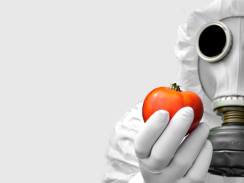
Does buying organic make sense? That might depend on whether the fruits and vegetables going into your shopping cart are on the newly released “dirty dozen” list of pesticide-tainted produce.
To compile the list, the Washington, D.C.-based Environmental Working Group looked at USDA and FDA data from 2000 to 2009 on 53 different produce items.
The group found traces of dozens of different pesticides on produce, with some fruits and vegetables especially likely to be contaminated. The group recommends eating fruits and vegetables that are not on the list – or buying organic, to avoid pesticides.
Do these residues really pose a threat? The group insists they can, saying they can result in lower intelligence when consumed by children.
“Even small amounts of these chemicals add up and can impair a child’s health when they’re exposed during the early, critical stages of their development,” Dr. Harvey Karp, author of “The Happiest Baby on the Block,” said in a written statement issued by the group. “When pesticide sprayers have to bundle up in astronaut-like suits for protection, it’s clear parents want to feed their families food containing as little of these toxic chemicals as possible.”
And lowered intelligence isn’t the only threat. Dr. Andrew Weil, director of the Arizona Center for Integrative Medicine, said in the statement that pesticide residues have been linked to attention deficit-hyperactivity disorder, hormonal problems, and even cancer.
What’s Weil’s advice to consumers? Avoid pesticides and pestice residues “whenever possible.”

